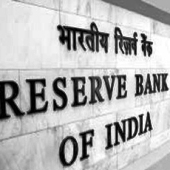 On the eve of the monetary policy review, the Reserve Bank of India sounded upbeat on growth but worried over inflation.
On the eve of the monetary policy review, the Reserve Bank of India sounded upbeat on growth but worried over inflation.
In the Macroeconomic & Monetary Developments report released this evening, the central bank drew comfort from the forecasters' survey -- which estimated that the Indian economy would grow by 6.9 per cent this year -- and improved business sentiments.
At the same time, RBI said the pressure on headline inflation from high food prices entailed the risk of being transmitted to non-food items through expectations driven wage-price revision and magnifying into generalised inflation.
"The growth outlook has clear upside prospects and the inflation outlook has upside risks," RBI said. A stronger recovery could make inflation a generalised process, it said in the 93-page document.
Anchoring inflation, which touched 7.3 per cent in December, and inflationary expectations is expected to be the main theme of Governor D Subbarao's statement tomorrow, but the pre-policy paper did not drop any hints.
It said the upside risks to inflation came from supply constraints for food articles tapering off only over a period of time; indications of a global rise in food prices and a rebound in commodity prices; return of pricing power with stronger recover and wage price revisions linked to consumer price inflation; rebound in private demand and asset price increase with higher capital inflows.
What could provide some buffer were the possibility of arrival of post-harvest crops in the last quarter, release of additional rice and wheat stocks, no further increase in the minimum support price and higher rabi production.
The economic forecasters' survey, however, raised the wholesale price inflation-based forecast for the current financial year from 3 per cent estimated to earlier to 4.4 per cent.
Like RBI, they were more bullish on growth and raised the forecast for the year from 6 per cent to 6.9 per cent. This was primarily due to higher growth estimates for the industry and services sectors and a lower than expected contraction by the farm sector, which has been hit by deficient rains.
According to the central bank's assessment, there are more upside risks than downside risks. Its optimism stemmed from an acceleration in GDP growth to 7.9 per cent during the second quarter, a turnaround in exports after 13 consecutive months of decline, strong industrial recovery, early signs of significant growth in corporate sales in the third quarter, improved corporate profitability, revival of private final consumption demand and improvement in fixed capital.
There were other factors too such as revival in stock market, signs of global recovery, turnaround in credit growth, higher flow of resources from non-banking finance companies and more business confidence.
Plus, RBI said that there was a revival in capital inflows but also listed it as something that needed to be factored into policy-making.
The downside risks to growth listed by RBI included the global recovery turning out to be less robust than expected, possibility of an oil price shock and the impact of the deficient rains on farm output, a large part of which is yet to be reflected in the GDP data.
Further, it said there could be possible pressure on interest rates with revival in demand for credit from the private sector.
And, inventory build-up could reach the cyclical peak, given the turnaround in inventory cycle since the second quarter. The external conditions could also hamper the performance of the services sectors such as tourism that were dependent on external demand, it added.
| LOOKING UP Median forecast by professional forecasters | |||||
| '08-09 | '09-10 | '10-11 | |||
| Actual | Earlier | Latest | Earlier | Latest | |
| GDP | 6.7 | 6.0 | 6.9 | 7.7 | 7.9 |
| * Agriculture | 1.6 | -1.4 | -0.9 | 3.7 | 3.5 |
| * Industry | 2.6 | 6.3 | 8.4 | 7.3 | 8.1 |
| * Services | 9.4 | 8.1 | 8.7 | 9.1 | 9.0 |
| GDS | 33.6 | 35.0 | 36.6 | 36.4 | |
| GDCF | 37.3 | 37.7 | 37.7 | 39.0 | |
| Inflation | 8.4 | 3.0 | 4.4 | 5.8 | 6.1 |
| Corporate PAT | NA | 10.0 | 11.3 | 14.5 | 18.0 |
| Exports | 5.4 | -5.0 | -5.2 | 14.2 | 15.2 |
| Imports | 14.3 | -15.7 | -8.3 | 12.0 | 17.4 |
|
All data other than GDS and GDCF provide % change (Figures in %) Source: RBI | |||||






